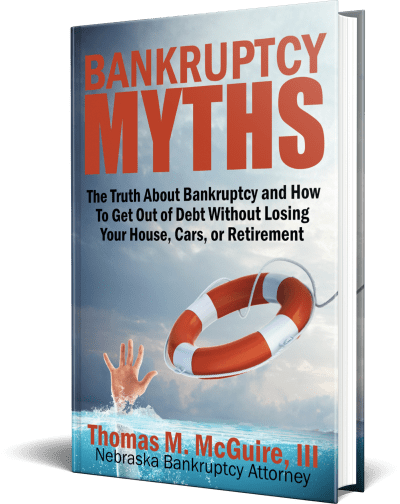Financial struggles can feel overwhelming and isolating. Many people associate bankruptcy with failure, but in reality, it can be a powerful legal tool designed to help individuals regain control over their financial lives. If you’re drowning in debt, it’s essential to understand that bankruptcy might be your best option—not a sign of defeat, but a pathway to a fresh start.
This article explores when filing for bankruptcy could be the right decision and how to evaluate whether it’s the right move for you.
Too Much Debt
If you’re drowning in debt with no way to pay it off, bankruptcy might be the answer. Common indicators include:
- High Credit Card Balances: Credit card debt has high interest rates, so if you’re only paying the minimum payments, you’ll never pay it off.
- Unsecured Loans: Personal loans with high balances and default penalties add to the financial stress.
- Debt Cycles: If you’re using credit cards or loans to pay off other debts, it could be a sign that you are in over your head.
- High Medical bills
Persistent Creditor Harassment
Creditor harassment is relentless and stressful. If you’re getting constant calls, letters or threats of legal action, repossessions, lawsuits, judgments or garnishments, bankruptcy might be your only choice. Filing for bankruptcy triggers an automatic stay which stops most collection activity, so you can finally get some peace.
Get A Free Bankruptcy Evaluation Today
Call (402) 965-0775 or (308) 221-8222 or click here to submit a consultation request form now.
Get Help Now
Risk of Losing Assets
When debt threatens to take away your basics, like housing or transportation, it’s time to consider bankruptcy. Look for:
- Foreclosure: If you can’t make your mortgage payments, Chapter 13 bankruptcy can save your home.
- Repossession: Falling behind on car payments can lead to repossession which can cripple your ability to work or live daily.
- Utility Shutoffs: Can’t pay for electricity, water or gas? That could be a sign your financial situation is critical.
Not Making Progress
If you’ve been financially struggling for months or years with no progress, bankruptcy can be a reset. Look for:
- Living Paycheck to Paycheck: If every dollar you earn goes toward debt payments, leaving no room for savings or emergencies, you may need a more comprehensive solution.
- Dipping into Retirement Funds: Using 401(k) or IRA savings to pay off debt is a warning sign. These funds are protected in bankruptcy, so you don’t have to use them.
Unexpected Events
Life is unpredictable and major events can blow up even the best laid plans. Bankruptcy might be your choice if you’ve had:
- Job Loss or Reduced Income: Sudden loss of income means you can’t pay your bills and debt.
- Medical Emergencies: Medical expenses are one of the leading causes of bankruptcy in the US.
- Divorce or Separation: A divorce means increased expenses and reduced income so you can’t manage your debts.
Bankruptcy Not the Answer
Bankruptcy is not a one-size-fits-all solution and you need to consider if it’s right for your situation. Here are scenarios where bankruptcy might not be your best option:
- Non-Dischargeable Debts: Some debts can’t be discharged in bankruptcy including:
- Student loans (except in rare cases of undue hardship)
- Recent tax debts
- Child support and alimony obligations
- Other Options: Before filing for bankruptcy, try:
- Debt Consolidation: Combining multiple debts into one loan with a lower interest rate.
- Credit Counseling: Working with a non-profit agency to develop a debt management plan.
- Negotiating with Creditors: Sometimes creditors will settle for a smaller amount or better repayment terms.
- Long Term Consequences: Bankruptcy affects your credit score and stays on your credit report for up to 10 years (Chapter 7) or 7 years (Chapter 13). If your financial issues are temporary or manageable through other means, bankruptcy might not be worth the long-term impact.
Get A Free Bankruptcy Evaluation Today
Call (402) 965-0775 or (308) 221-8222 or click here to submit a consultation request form now.
Get Help Now
Why File for Bankruptcy
When used correctly, bankruptcy has many benefits that outweigh the drawbacks. Here are a few:
- Immediate Relief Through the Automatic Stay: Once you file, most collection activity stops including phone calls, lawsuits and wage garnishments.
- Debt Discharge: Bankruptcy allows you to eliminate unsecured debts like credit card balances and medical bills and start fresh.
- Repayment Plans: Chapter 13 bankruptcy lets you create a payment plan for debts, often with lower interest or principal amounts.
- Protection of Key Assets: Bankruptcy exemptions protect certain assets like your home, car and retirement accounts from being liquidated.
How to Decide if Bankruptcy is Right for You
Deciding to file for bankruptcy is not easy but following a process can help:
- Evaluate Your Situation: Get a clear picture of your income, expenses, assets and debts. This will help you determine if you’re insolvent.
- Talk to a Nebraska Bankruptcy Attorney: A qualified attorney can review your situation and advise you on what to do, including if bankruptcy is an option.
- Understand the Means Test: The means test determines Chapter 7 eligibility by comparing your income to the median income in your state.
- Consider Alternatives: Before committing to bankruptcy try other debt relief options. An attorney or credit counselor can help you weigh the pros and cons of each.
Bottom Line
Bankruptcy is not an easy decision but it can be the right choice for those with overwhelming financial problems. By stopping debt, stopping collections and giving you a fresh start, bankruptcy helps thousands of people every year. If you’re not sure if bankruptcy is for you, talk to a financial professional or bankruptcy attorney to explore your options and take control of your financial life. Remember, seeking help is a sign of strength not failure.



